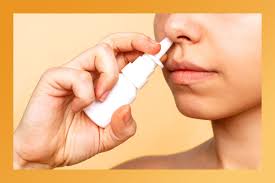Maintaining good reproductive health is a priority for women, and implementing safety work measures can significantly contribute to achieving this goal. Dr Scott Kamelle emphasizes the importance of simple yet effective precautions that women can take to safeguard their reproductive health and overall well-being. Let’s explore these safety work measures and their benefits.
Stay Hydrated with Plenty of Water
Drinking an adequate amount of water is crucial for overall health, including reproductive health. Hydration helps flush toxins from the body, aids in digestion, and promotes healthy skin. Staying properly hydrated also supports metabolism and can aid in weight management. Women are encouraged to drink at least eight cups of water per day to ensure their bodies function optimally.
Adopt a Healthy Diet and Avoid Junk Food
A balanced diet rich in nutrients is essential for reproductive health. Women should focus on consuming a variety of fruits, vegetables, whole grains, and lean proteins. These foods provide essential vitamins, minerals, and antioxidants that promote overall well-being. Conversely, avoiding junk food and processed foods helps reduce the risk of chronic conditions such as diabetes and heart disease, which can negatively impact reproductive health.
Manage Stress to Preserve Reproductive Health
Chronic stress can lead to hormonal imbalances that affect reproductive health. Women should proactively manage stress through various techniques, such as meditation, yoga, regular exercise, and sufficient sleep. Taking time for relaxation and engaging in activities that bring joy can help reduce stress levels and promote overall well-being.
Minimize Exposure to Harmful Chemicals
Exposure to certain chemicals can harm the reproductive system and contribute to infertility. Women should be cautious with items containing mercury, such as thermometers and certain batteries, as mercury exposure can have adverse effects on reproductive health. It is crucial to handle and dispose of these items properly and avoid prolonged exposure to harmful substances.
Regular Checkups and Preventive Care
Visiting a gynecologist regularly for checkups and preventive care is fundamental to maintaining reproductive health. These routine appointments allow healthcare professionals to detect any potential issues early on and provide appropriate interventions. Pap smears, pelvic exams, and screenings are vital for the early detection of reproductive health concerns.
Practice Safe Sex and Use Contraception
Engaging in safe sex practices and using contraception is essential for both reproductive health and family planning. Condoms and other barrier methods can help prevent sexually transmitted infections (STIs) and unwanted pregnancies. Women should explore various contraceptive options with their healthcare providers to find the best fit for their individual needs.
Conclusion
Taking proactive steps to ensure good female reproductive health is vital for women of all ages. Dr Scott Kamelle emphasizes the significance of maintaining a healthy lifestyle, managing stress, and avoiding harmful chemicals to promote reproductive well-being. By staying hydrated, eating a nutritious diet, and practicing safe sex, women can safeguard their reproductive health and enhance their overall quality of life. Regular checkups and preventive care are crucial components of reproductive health maintenance, providing early detection and timely interventions when necessary. Implementing these safety work measures can empower women to take control of their reproductive health and lead healthier, fulfilling lives.



